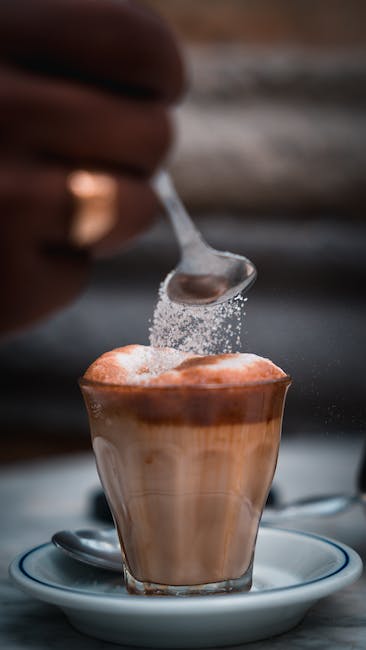Sucralose vs Aspartame: Unveiling the Sweet Truth
Are you caught in the sweet dilemma of choosing between sucralose and aspartame? With a myriad of artificial sweeteners available, it’s crucial to understand how they impact your health, taste, and diet. In this comprehensive guide, we’ll dive deep into the world of these popular sugar substitutes, answering your burning questions and helping you make an informed decision.
Introduction to Artificial Sweeteners
Artificial sweeteners have become a staple in the modern diet, offering the sweetness of sugar without the associated calories. As obesity and diabetes rates soar, more individuals are turning to these sugar alternatives. Among them, sucralose and aspartame are two of the most widely used. But what sets them apart, and which one should you choose?
What is Sucralose?
Understanding Sucralose
Sucralose, commonly known by the brand name Splenda, is a zero-calorie artificial sweetener derived from sugar. It’s made through a process that replaces three hydrogen-oxygen groups on the sugar molecule with chlorine atoms. This alteration makes sucralose about 600 times sweeter than sugar and not metabolizable by the body, hence it doesn’t contribute calories.
The Benefits and Uses of Sucralose
- Heat stability makes it suitable for cooking and baking
- Does not affect blood sugar levels, making it diabetic-friendly
- Long shelf life
What is Aspartame?
Exploring Aspartame
Aspartame, known under brand names like Equal and NutraSweet, is a low-calorie sweetener that’s approximately 200 times sweeter than sugar. It’s composed of two amino acids: aspartic acid and phenylalanine. Unlike sucralose, aspartame does have a caloric value, but because it’s used in such small amounts, its calorie contribution is negligible.
The Pros and Cons of Aspartame
- Provides a taste closer to natural sugar
- Not suitable for high-temperature cooking
- Contains phenylalanine, which is harmful to individuals with phenylketonuria (PKU)
Sucralose vs Aspartame: Health Implications
The Safety of Sucralose and Aspartame
Both sucralose and aspartame have been approved by various health authorities, including the FDA. However, they have faced scrutiny over potential health risks. Studies have shown mixed results, and while most research indicates that they are safe when consumed within the acceptable daily intake (ADI), some people may experience adverse effects.
Potential Side Effects
- Digestive discomfort
- Allergic reactions
- Controversial studies linking to other health issues
Sucralose vs Aspartame: Weight Management
Can They Help with Weight Loss?
Artificial sweeteners are often marketed as weight loss aids, but the evidence is inconclusive. Some studies suggest they can help reduce overall calorie intake, while others indicate they may lead to cravings and weight gain.
Understanding the Psychological Impact
- The sweetness without calories paradox
- Potential for increased appetite and cravings
Environmental and Ethical Considerations
The Production Process
The manufacturing of artificial sweeteners has environmental impacts. The production process for both sucralose and aspartame involves chemical synthesis, which can contribute to pollution.
Ethical Concerns
- Animal testing in the development of sweeteners
- The debate over genetically modified organisms (GMOs) in sweetener production
Sucralose vs Aspartame: Taste and Culinary Uses
Comparing the Taste Profiles
While both aim to mimic the sweetness of sugar, they have distinct taste profiles. Some people may detect a slight bitterness or chemical aftertaste with aspartame, while sucralose is often described as having no aftertaste.
Best Uses in Cooking and Baking
- Sucralose’s heat stability makes it versatile for various recipes
- Aspartame is best used in cold dishes or added after cooking
Frequently Asked Questions
Is Sucralose or Aspartame Better for Diabetics?
Both sweeteners do not significantly affect blood sugar levels, making them suitable for diabetics. However, individual responses may vary, and it’s essential to monitor blood sugar when trying new sweeteners.
Can Sucralose or Aspartame Cause Cancer?
Current research does not conclusively link sucralose or aspartame to cancer in humans. Most health authorities consider them safe when consumed within the ADI.
Are There Natural Alternatives to Sucralose and Aspartame?
Yes, natural sweeteners like stevia and monk fruit extract are gaining popularity as alternatives to artificial sweeteners.
Conclusion: Making an Informed Choice
When it comes to sucralose vs aspartame, the decision is not just about sweetness but also about health, taste preferences, and dietary needs. Both sweeteners have their advantages and potential drawbacks. By understanding their differences and considering your personal health goals, you can make a choice that aligns with your lifestyle. Remember to consume any sweetener in moderation and consult with a healthcare professional if you have specific health concerns. Sweeten your life wisely!


